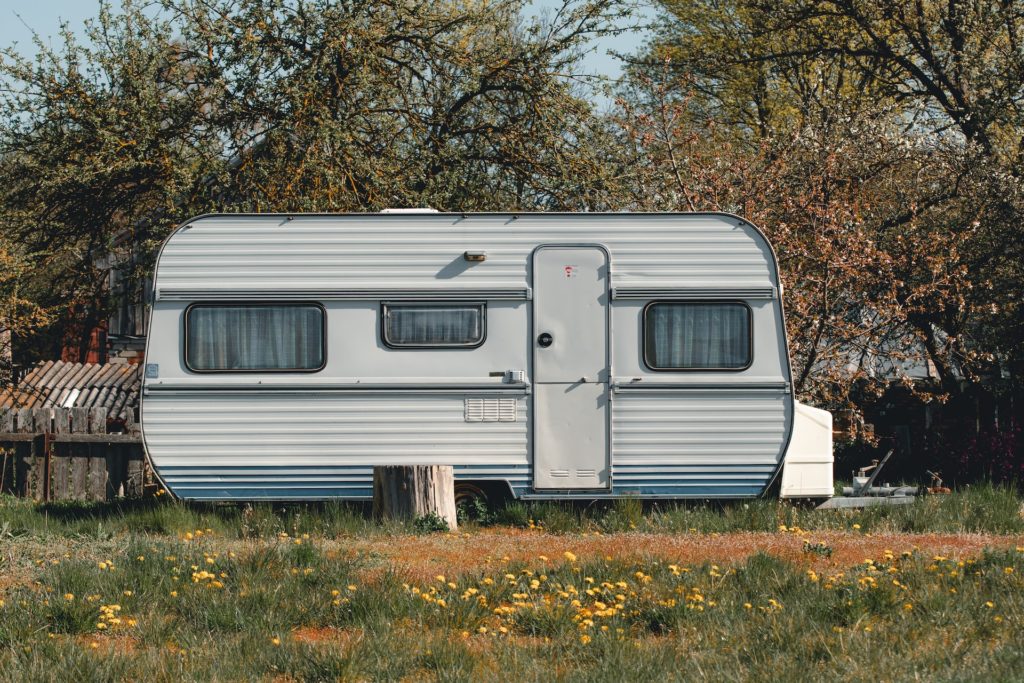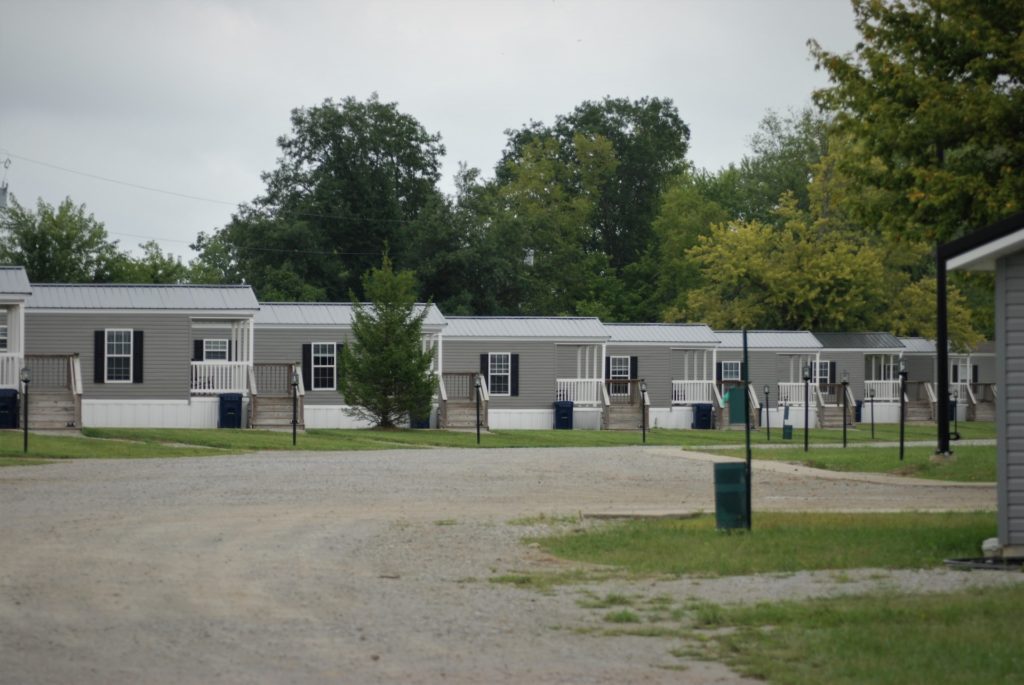If you’ve ever considered relocating your mobile home to a new place without breaking the bank, you’re in the right place. Moving your mobile home for free is more achievable than you might think.
To move a mobile home for free, consider these steps: secure a moving permit, understand local laws, choose the right mobile home park, negotiate a free move-in deal, and ensure compliance with HUD standards. It’s an achievable goal with the right knowledge and strategy.
This guide will provide a step-by-step plan and tips on how to move a mobile home for free.
Understanding the Basics
The Mobile HoHow to Move a Mobile Home for Freeme Lifestyle
Mobile homes, also called manufactured homes, are a practical and affordable housing option. They stand out because you can easily move them, making them a flexible choice for people and families looking for budget-friendly homes.
Why Move a Mobile Home?
The decision to relocate to a mobile home can be influenced by a wide array of motives, each tied to unique circumstances and aspirations. Here, we explore some of the primary reasons behind the choice to move into or relocate a mobile home:
- Pursuing an Affordable Lifestyle: A prominent driver for many is the pursuit of an economical lifestyle. Mobile homes are often associated with lower initial costs and ongoing expenses, making them a preferred choice for individuals and families looking to reduce their housing-related financial burdens.
- Embracing a Change in Scenery: Another compelling incentive is the desire for a change of surroundings. Whether driven by a longing for a different climate, a closer connection to nature, or a thirst for urban experiences, the flexibility of mobile homes allows occupants to embark on a new journey in their preferred environment.
- Seizing New Job Opportunities: The dynamics of employment can significantly influence housing decisions. In pursuit of career growth or enticing job prospects, individuals may choose to relocate their mobile homes to align with their evolving professional lives.
- Embracing Nomadic Freedom: Mobile homes inherently offer mobility, which resonates with those seeking a nomadic lifestyle. For wanderlust-driven individuals, the allure of exploring diverse locales and experiences is heightened by the ability to hitch their homes to a vehicle and embark on adventures.
The Legal Landscape
The Crucial Moving Permit
One of the foundational aspects of relocating a mobile home is securing a moving permit. This essential document is your ticket to a smooth and lawful transition. Here’s a comprehensive guide to navigating the permit process:
Checklist: To initiate the process, it’s imperative to compile all necessary documentation before applying for a moving permit. Ensure you have the following in order:
- Proof of Tax Payments: Most jurisdictions will require evidence of current and past tax payments on the mobile home. This is a crucial step to verify that there are no outstanding tax liabilities associated with the property.
- Certificate of Title: You must possess a valid certificate of title for the mobile home. This serves as proof of ownership and is typically issued by your state’s Department of Motor Vehicles or a similar agency.
State Variations: It’s essential to recognise that moving permit requirements can exhibit variations from state to state. Each jurisdiction may have its specific criteria and procedures for obtaining a permit. Therefore, thorough research tailored to your location is indispensable to ensure compliance.
Navigating State and County Laws
Understanding the legal framework that governs mobile home moves is paramount to a successful and trouble-free relocation. Here, we shed light on the crucial considerations:
Examples: State and county laws can significantly impact the process of moving a mobile home. To bolster your comprehension, let’s explore some examples of how these laws may manifest:
- Transportation Regulations: Some states impose specific regulations governing the transportation of mobile homes. This may include requirements related to transportation equipment, routes, and safety measures. Being well-informed about these regulations is crucial to avoid legal complications during transit.
- Age and Structural Requirements: In certain jurisdictions, mobile homes that are over a certain age may face additional scrutiny. To move an older mobile home, you might need to provide documentation proving its structural integrity and compliance with relevant building codes.
Also Read: Mobile Home Skirting Ideas
Finding Your Ideal Destination
Selecting the Right Mobile Home Park
The choice of a mobile home park is pivotal in determining your living experience. Here’s a comprehensive guide to assist you in making an informed decision:
Checklist: When evaluating potential mobile home parks, it’s essential to consider several critical factors to ensure the park aligns seamlessly with your lifestyle and preferences. Take the following into account:
- Location: Begin by assessing the location of the mobile home park. Consider proximity to your workplace, schools, healthcare facilities, and other essential amenities. A convenient location can significantly enhance your daily life.
- Amenities: Explore the amenities offered within the park. These may include recreational facilities, communal spaces, security features, and more. A park with well-rounded amenities can contribute to a higher quality of life.
- Community: Gauge the sense of community within the park. Engage with current residents, if possible, to get a feel for the social dynamics. A welcoming and harmonious community can be immensely rewarding.
The Move-In Process
DIY vs. Professional Moves
Hiring licensed and insured movers is crucial for a smooth relocation. Understand the pros and cons of moving your mobile home or hiring professionals.
DIY Move:
Pros:
- Cost Savings: Undertaking a do-it-yourself (DIY) move can be more budget-friendly, as you won’t need to pay for professional moving services.
- Personal Control: You have full control over the moving process, from planning the schedule to handling your belongings.
Cons:
- Skill and Equipment: Moving a mobile home requires specific skills and equipment, including the proper towing vehicle and knowledge of mobile home setup.
- Time and Effort: DIY moves can be time-consuming and physically demanding, as you’ll be responsible for every aspect of the relocation.
Professional Move:
Pros:
- Expertise: Professional movers are trained and experienced in mobile home transportation, ensuring a smoother and safer relocation.
- Equipment: They have the necessary equipment, such as specialized trailers and towing vehicles, to handle the move efficiently.
Cons:
- Cost: Hiring professionals comes at a cost, which can vary depending on the distance, size, and complexity of the move.
- Less Control: While you can specify your preferences, you might have less hands-on control over the process compared to a DIY move.
Compliance with HUD Standards: The HUD Code, established in 1976, sets standards for mobile homes. Complying with these regulations is essential.
Additional Considerations
Utility Connections:
When it comes to moving your mobile home, ensuring that utility connections are in order is essential for a smooth transition to your new location. Utilities like electricity, water, and sewage are vital for comfortable living. Here’s why you should prioritize them:
Importance of Utilities:
- Electricity: It powers your home, providing light, heating, and cooling. Without electricity, daily life can become challenging.
- Water: Access to clean water is crucial for drinking, cooking, bathing, and sanitation.
- Sewage: Proper sewage connections are necessary to ensure wastewater is safely and hygienically managed.
Recommendations:
To simplify the process of connecting utilities to your mobile home after the move, consider these recommendations:
- Research Local Utility Providers: Before the move, research and contact local utility providers in your new area. Inquire about the application process, fees, and required documents. Exploring your options for an electricity provider and water in your new home will help you find the best fit for your needs and budget.
- Schedule Connections in Advance: To avoid delays, schedule utility connections well in advance of your move. Some providers may have waiting periods or specific installation times.
- Coordinate with Professionals: If you’ve hired professional movers, coordinate with them to ensure utility connections are set up correctly and safely.
Mobile Home Insurance:
Understanding the importance of mobile home insurance is crucial to safeguard your investment and protect your home from unexpected events. Here’s why it’s vital:
Why Mobile Home Insurance Matters:
- Protection: Mobile home insurance provides financial protection in case of damage, theft, or accidents that may occur to your home.
- Liability Coverage: It also offers liability coverage, which can be essential if someone is injured on your property.
- Peace of Mind: Having insurance gives you peace of mind, knowing that you have a safety net in case of unforeseen circumstances.
Statistics:
While the cost of mobile home insurance can vary based on factors like location and coverage, it’s helpful to explore some statistics to understand the broader picture. On average, mobile home insurance costs can range from $250 to $1,300 per year, depending on various factors. These costs are significantly lower than traditional home insurance.
FAQs
- Can I Move My Mobile Home with a Pickup Truck?
Moving a mobile home with a pickup truck is typically not feasible due to their size and weight. Mobile homes are usually transported by professional movers with specialized equipment.
- What Are the Requirements for Mobile Home Park Move-Ins?
Requirements for moving your mobile home into a mobile home park can vary by location and park. Generally, you’ll need to meet the park’s criteria, which may include background checks, age restrictions on mobile homes, and adherence to park rules.
- Is It Possible to Move a Mobile Home with Furniture Inside?
It’s not recommended to move a mobile home with furniture inside. Emptying the home of furniture before the move is typically necessary to ensure safety and prevent damage during transportation.
- How Long Does the Mobile Home Moving Process Take?
The duration of the mobile home moving process can vary based on factors like distance, permit processing times, and setup at the new location. On average, it can take a few weeks to a couple of months from planning to completion.
Also Read: How can you Integrate Technology into your Home?
Conclusion
The affordability of life is what makes mobile homes attractive to people. But many have doubts about the costs of moving their mobile homes. The above mentioned steps and methods can help save a ton of money. In any case, always make sure you know the legal side of things. So, pack up your home and start that adventure.
Have a safe journey!


